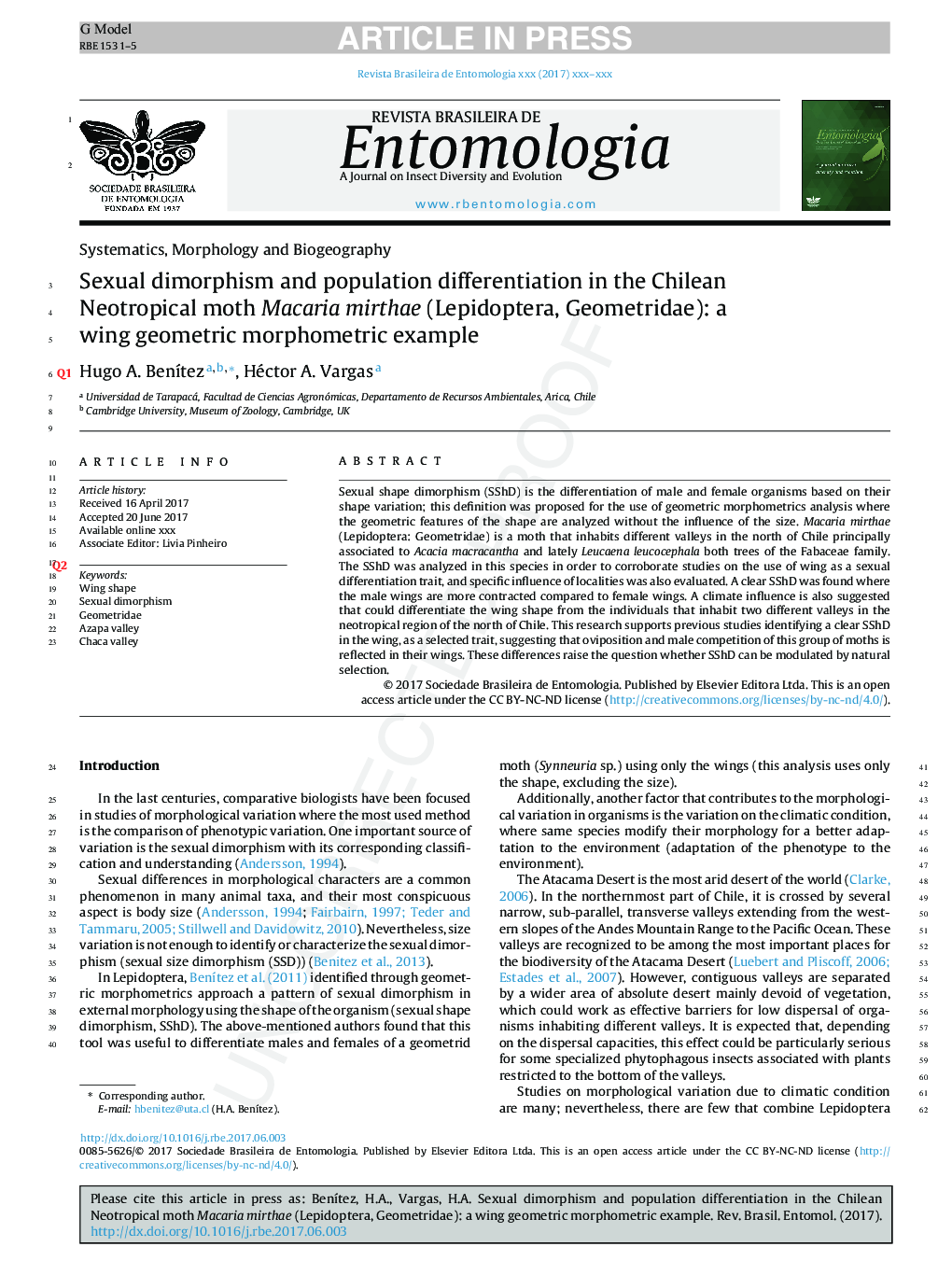| کد مقاله | کد نشریه | سال انتشار | مقاله انگلیسی | نسخه تمام متن |
|---|---|---|---|---|
| 8877245 | 1624108 | 2017 | 5 صفحه PDF | دانلود رایگان |
عنوان انگلیسی مقاله ISI
Sexual dimorphism and population differentiation in the Chilean Neotropical moth Macaria mirthae (Lepidoptera, Geometridae): a wing geometric morphometric example
دانلود مقاله + سفارش ترجمه
دانلود مقاله ISI انگلیسی
رایگان برای ایرانیان
موضوعات مرتبط
علوم زیستی و بیوفناوری
علوم کشاورزی و بیولوژیک
علوم کشاورزی و بیولوژیک (عمومی)
پیش نمایش صفحه اول مقاله

چکیده انگلیسی
Sexual shape dimorphism is the differentiation of male and female organisms based on their shape variation; this definition was proposed for the use of geometric morphometrics analysis where the geometric features of the shape are analyzed without the influence of the size. Macaria mirthae (Lepidoptera: Geometridae) is a moth that inhabits different valleys in the north of Chile principally associated to Acacia macracantha and lately Leucaena leucocephala both trees of the Fabaceae family. The Sexual dimorphism was analyzed in this species in order to corroborate studies on the use of wing as a sexual differentiation trait, and specific influence of localities was also evaluated. A clear shape variation was found where the male wings are more contracted compared to female wings. A climate influence is also suggested that could differentiate the wing shape from the individuals that inhabit two different valleys in the neotropical region of the north of Chile. This research supports previous studies identifying a clear Sexual shape dimorphism in the wing, as a selected trait, suggesting that oviposition and male competition of this group of moths is reflected in their wings. These differences raise the question whether Sexual shape dimorphism can be modulated by natural selection.
ناشر
Database: Elsevier - ScienceDirect (ساینس دایرکت)
Journal: Revista Brasileira de Entomologia - Volume 61, Issue 4, OctoberâDecember 2017, Pages 365-369
Journal: Revista Brasileira de Entomologia - Volume 61, Issue 4, OctoberâDecember 2017, Pages 365-369
نویسندگان
Hugo A. BenÃtez, Héctor A. Vargas,